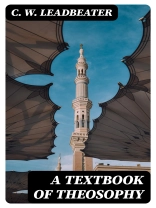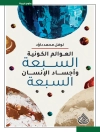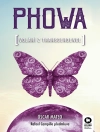C. W. Leadbeater’s ‘A Textbook of Theosophy’ serves as a comprehensive introduction to Theosophy, a spiritual movement that seeks to explore the interconnectedness of all life through philosophical and metaphysical inquiry. Leadbeater employs a clear, didactic style, rich with symbolism and allegory, inviting readers to delve into the esoteric teachings of various spiritual traditions. Set against the backdrop of the late 19th and early 20th centuries, Leadbeater contextualizes Theosophy within a growing interest in spirituality, mysticism, and Eastern philosophies, meticulously explaining complex concepts like karma, reincarnation, and the nature of the soul. C.W. Leadbeater, a prominent figure in the Theosophical Society, was deeply influenced by his spiritual explorations and his connection with notable contemporaries such as Helena Petrovna Blavatsky. His extensive travels in India and his dedication to uncovering mystical perspectives contributed significantly to his understanding of the spiritual doctrines he articulates in this work. Leadbeater’s dual life as a clairvoyant and writer uniquely shapes his teachings, providing readers both practical insights and abstract concepts founded on personal experience and observation. This book is highly recommended for seekers and scholars alike, offering an intellectual foundation for those wishing to explore the depths of Theosophy. Readers will find Leadbeater’s detailed exegesis both enlightening and transformative, serving as a stepping stone to greater spiritual understanding.
Over de auteur
Charles Webster Leadbeater (1854–1934) was a prominent figure in the Theosophical Society, an organization established to advance the spiritual principles and search for Truth known as Theosophy. His writings contributed significantly to the spread of Theosophical thought and the broader field of esoteric spirituality in the early 20th century. Leadbeater was noted for his clairvoyant abilities and his close association with another leading Theosophist, Annie Besant. One of his key works, ‘A Textbook of Theosophy’, elucidates the fundamental concepts of the Theosophical belief system, addressing topics such as the nature of the divine, the evolution of the soul, and the hidden side of life. His literary style is characterized by the blend of intricate metaphysical exposition and a fervent quest for esoteric understanding. Leadbeater’s work remains influential in New Age thought and continues to be studied by those interested in the occult and mystical aspects of spirituality. His contributions to Theosophical literature and the perpetuation of its doctrines have carved him a definitive niche in the annals of metaphysical and spiritual literature.












